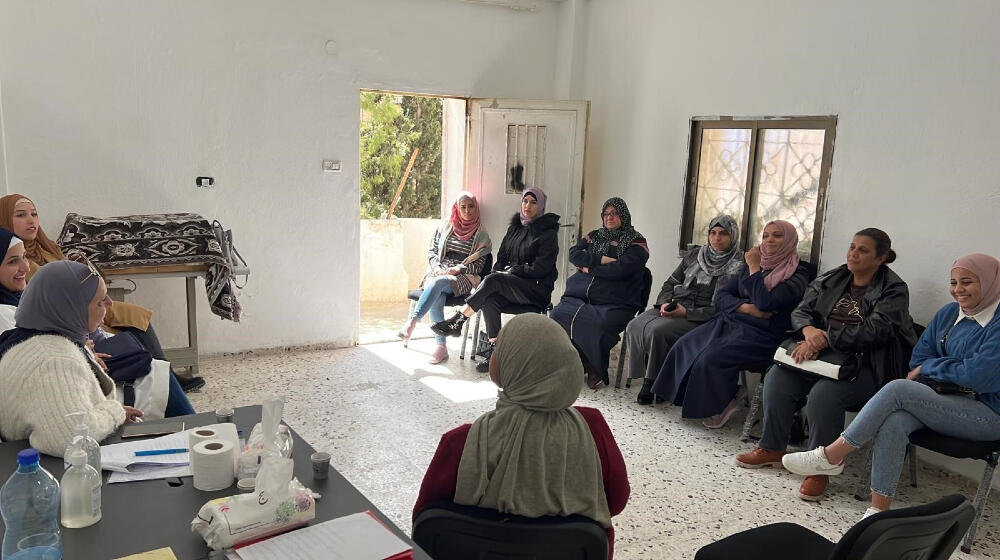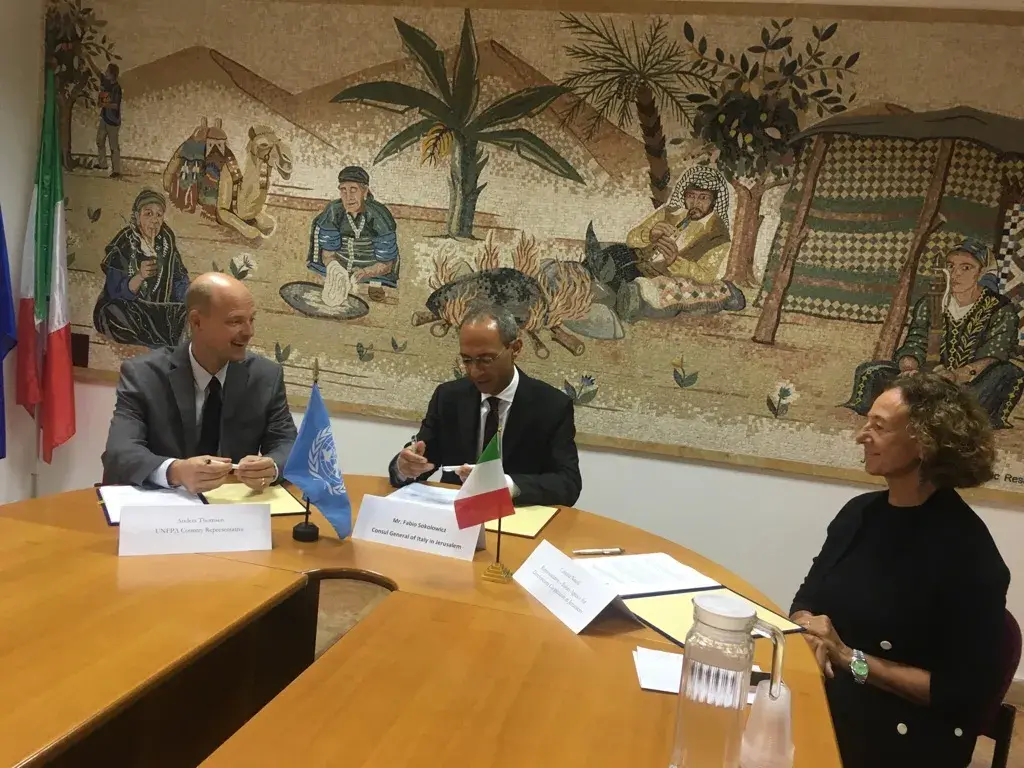ISSAWIYAH, Palestine – “Our centre is the first of its kind in this small community,” said Ikhlas, 38, at a newly established women’s centre in Issawiyah, a suburb of East Jerusalem. The centre is unique not only in offering counselling to survivors of gender-based violence in the area, but also because it is led by women.
As East Jerusalem is under full Israeli control, the Palestinian authorities are unable to provide essential social services for Palestinians living there. Instead, community-based organizations were filling those needs – yet they were organizations led mainly by men. This left some survivors of gender-based violence, and women and girls more generally, reluctant to come forward in search of assistance.
But now, a group of women have come together to change that.
Paving the path
The women are members of the One Hand Society, a community-based organization in Issawiyah that trains counsellors and service providers to address the specialized needs of survivors of gender-based violence and to increase community engagement on these sensitive issues.
The women themselves had participated in a related training programme through the One Hand Society and the Hemaya Network, which was created by UNFPA in cooperation with the Palestinian Family Planning and Protection Association and is made up of 15 protection organizations.
Inspired by what they’d learned, seven women came together earlier this year to establish a new space – this one just for women. With funding from UNFPA and supported from the Palestinian Counselling Centre – a member of the Hemaya Network which has also provided training to One Hand Society – they launched the new centre.
“The beginning is always challenging, yet these challenges are our future successes,” said Sana, 35, one of the founders of the women-only centre.
In this case, the challenges they encountered paved the path to the women’s future. Their first order of business was to conduct a needs assessment in the community, which revealed that local women were often uncomfortable expressing themselves in the existing spaces run by men. Those spaces provided services to the broader community, not only women. When women wanted to address sensitive issues such as domestic abuse, psychological violence or sexual health matters, their concerns were often met with an intimidating lack of privacy or expertise.
Significant support
Some 29 per cent of Palestinian women who are or have ever been married have experienced some form of abuse, according to a 2019 violence survey.
Some of this can be attributed to the high degree of instability in the country: Gender-based violence is known to increase in crisis settings, where protection mechanisms break down and stressors such as conflict and poverty are intense. Issawiyah in particular has experienced major high-stress events, including home demolitions, detentions, movement restrictions and the COVID-19 pandemic, leaving women at heightened risk.
But gender-based violence was not the only issue identified in the assessment. The exercise also highlighted the lack of a dedicated space to seek assistance in the community, and to improve gender equality and the opportunities available for women and girls more generally.
When Ikhlas and her colleagues approached the heads of other community-based organizations about establishing a centre run by and for women, they received significant support. Together, they opened the new women’s centre, which provides a range of services, including awareness-raising sessions, empowerment workshops, psychosocial support and referrals to other services. Sana, for example, is currently organizing 20 sessions on gender, women’s rights and gender-based violence.
“Our centre is a small world where women can visit any time any day,” said Ikhlas.
The success of their efforts has inspired others as well. “We hope to replicate this initiative in other communities in East Jerusalem, where it is needed the most,” said Dima Tadros, project coordinator of the Palestinian Counselling Centre.
UNFPA supports women and girls in Palestine by ensuring access to essential sexual and reproductive health services, reaching over 350,000 people in 2020 alone. Its comprehensive gender-based violence prevention, protection and counselling programmes assisted nearly 45,000 survivors and those at risk of abuse, and women-led initiatives will continue to be rolled out across the territory to support women and girls’ health, rights and dignity. Many of these efforts, including the women-led spaces, have been implemented with support from the Catalan Development Cooperation Agency in cooperation with Palestinian Family Planning and Protection Association and Hemaya Network in Jerusalem.





